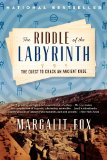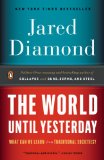Summary | Excerpt | Reviews | Beyond the book | Read-Alikes | Genres & Themes | Author Bio

Boston, New York, and the Incredible Rivalry That Built America's First Subway
by Doug MostThe Race Underground is a great American saga of two rival American cities, their rich, powerful and sometimes corrupt interests, and an invention that changed the lives of millions.
A compelling work of narrative nonfiction, selected as a Discover Pick by Barnes and Noble, The Race Underground is a riveting true story of the dramatic and sometimes deadly competition between New York and Boston to build the first American subway. For readers who love Erik Larson and David McCullough, The Race Underground is peopled with the famous, like Boss Tweed, and Thomas Edison, a great American saga of two rival American cities, the powerful interests within, and an invention that changed the lives of millions.
The Race Underground conveys a constant sense of motion, a dizzying energy going forward, the growth of new science and technology at a faster pace into the future. I loved the vivid descriptions of the city streets in the horse and carriage days, and can only imagine the joy when finally the cleaner, faster way of moving people was finally in place. This book is so rich and full of history and was much more satisfying than a novel...continued
Full Review
(441 words)
This review is available to non-members for a limited time. For full access,
become a member today.
(Reviewed by First Impressions Reviewers).
While Boston and New York might have been competing stateside to launch the first subway, across the Atlantic, London was already way ahead in getting its underground tube rolling.
In the mid-nineteenth century, congestion was getting to be an increasing problem in the city as the only way to travel around was by buses and cabs, not quite the mass transit system that was really needed.
 The solution was a sub-surface system that would alleviate congestion by moving some of it below the ground. The initial method used to dig the tunnel was called "cut and cover;" in essence, a trench was dug and then covered over with materials that supported whatever passed over it. These "cut and cover" tunnels were only about 60 foot deep and ...
The solution was a sub-surface system that would alleviate congestion by moving some of it below the ground. The initial method used to dig the tunnel was called "cut and cover;" in essence, a trench was dug and then covered over with materials that supported whatever passed over it. These "cut and cover" tunnels were only about 60 foot deep and ...
This "beyond the book" feature is available to non-members for a limited time. Join today for full access.

If you liked The Race Underground, try these:

by Margalit Fox
Published 2014
The Riddle of the Labyrinth: The Quest to Crack an Ancient Code tells one of the most intriguing stories in the history of language, masterfully blending history, linguistics, and cryptology with an elegantly wrought narrative.

by Jared Diamond
Published 2013
The World Until Yesterday provides a mesmerizing firsthand picture of the human past as it had been for millions of years - a past that has mostly vanished - and considers what the differences between that past and our present mean for our lives today.